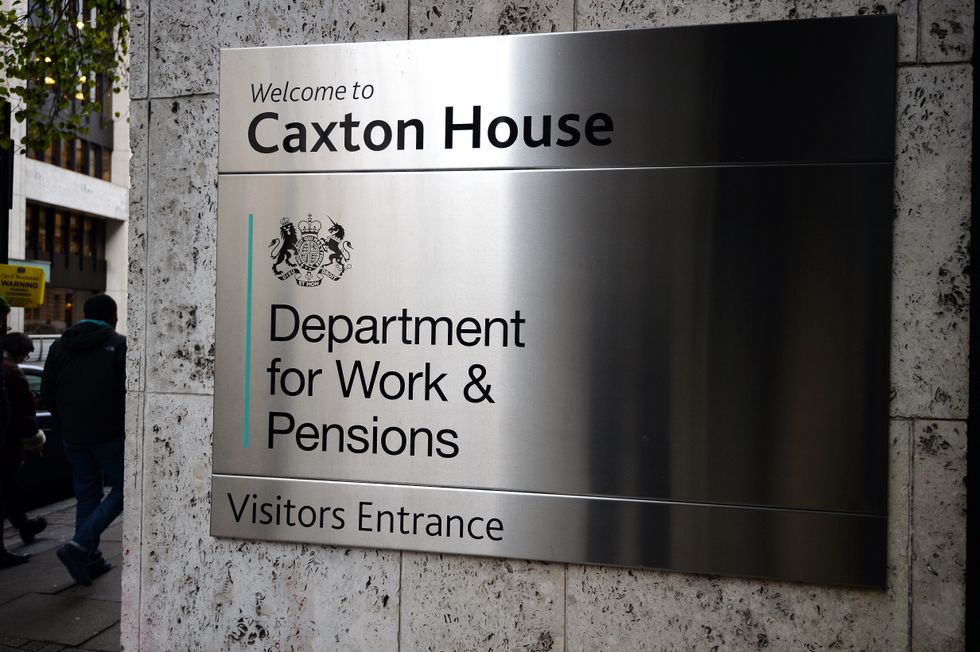Over a million state pension recipients could get extra financial assistance to help with heating costs
PEXELS
Pension Age Winter Heating Payment (PAWHP) will provide an annual payment to pensioner households to help with heating costs in winter
Don't Miss
Most Read
Trending on GB News
Pension Age Winter Heating Payment (PAWHP) will replace the UK Government’s Winter Fuel Payment (WFP) in Scotland from winter.
Over a million state pension recipients could get extra financial assistance to help with heating costs.
Following a public consultation, the eligibility criteria and payment amounts of PAWHP will be very identical to the DWP scheme.
The Scottish Government confirmed that those who qualify for DWP Winter Fuel Payments will continue to receive the same level of financial support, even with the change in benefit.
The Scottish Government has assured that these payments will remain non-means tested and exempt from tax.
Officials have stated: "Based on estimations of eligible claimants, PAWHP will be an investment of around £180million in the first year (2024/25), providing support to over one million eligible people."

The operation of PAWHP, including eligibility criteria and payment amounts, will closely mirror the existing DWP scheme.
GETTYClaimants can get up to £300, and the payment will remain non-means tested and tax-free, ensuring all recipients maintain their benefits, officials say.
Just like the Winter Fuel Payments (WFP), the new PAWHP is expected to hit eligible pensioner accounts automatically between November and January each year.
The WFP scheme is designed to assist people with their heating costs during the colder months. The eligibility criteria are based on age and living arrangements.
Individuals over 66 or over 80, as well as their household status whether single, part of a couple or in residential care during a specific week in September, are considered for the payment.
According to GOV. SCOT, the WFP rates will remain at £100, £150, £200, or £300, depending on the individual's circumstances.
Typically, a two-person household is expected to receive either £200 or £300.
The guidance clarifies: "We intend to maintain the current values of payments.
"That means, generally, that a typical household where the oldest person is under 80 will receive £200 and a household containing a person aged 80 or over will receive £300. The exception to this is where someone is in residential care."
Qualifying household rates
The exact guidelines for the payment are yet to be confirmed, but a recent consultation suggested that the amount received will depend on household circumstances and age.
For households meeting the eligibility criteria, the following payment rates apply:.
- Aged 66-79 and living alone or with a non-qualifying individual: £200.
- Aged 80+ and living alone or with a non-qualifying individual: £300.
- Aged 66-79 and cohabiting with a qualifying individual under 80: £100 each, totalling £200.
- Aged 66-79 and cohabiting with a qualifying individual aged 80+: £100 each, totalling £150.
- In residential care without certain benefits like Pension Credit: £100 for ages 66-79, £150 for 80+.
- In residential care with qualifying benefits: No payment regardless of age.
LATEST DEVELOPMENTS:
Another DWP benefit is set to be replaced in Scotland this year.
The Pension Age Disability Payment will replace Attendance Allowance as part of a phased pilot launch in Autumn 2024 for new claimants. Eventually, the scheme will be rolled out nationwide by Spring 2025.
The eligibility and payment rates for the Pension Age Disability Payment will mirror those from the DWP.
The weekly payment will be either £72.65 or £108.55 - equating to £290.60 or £434.20 every four-week pay period.
This benefit is designed to assist older individuals with additional daily living expenses, enabling them to stay in their own homes for longer.
Social Security Scotland has stated that eligibility for Pension Age Disability Payment will be made using the applicant's account of their circumstances and any existing supporting information.







